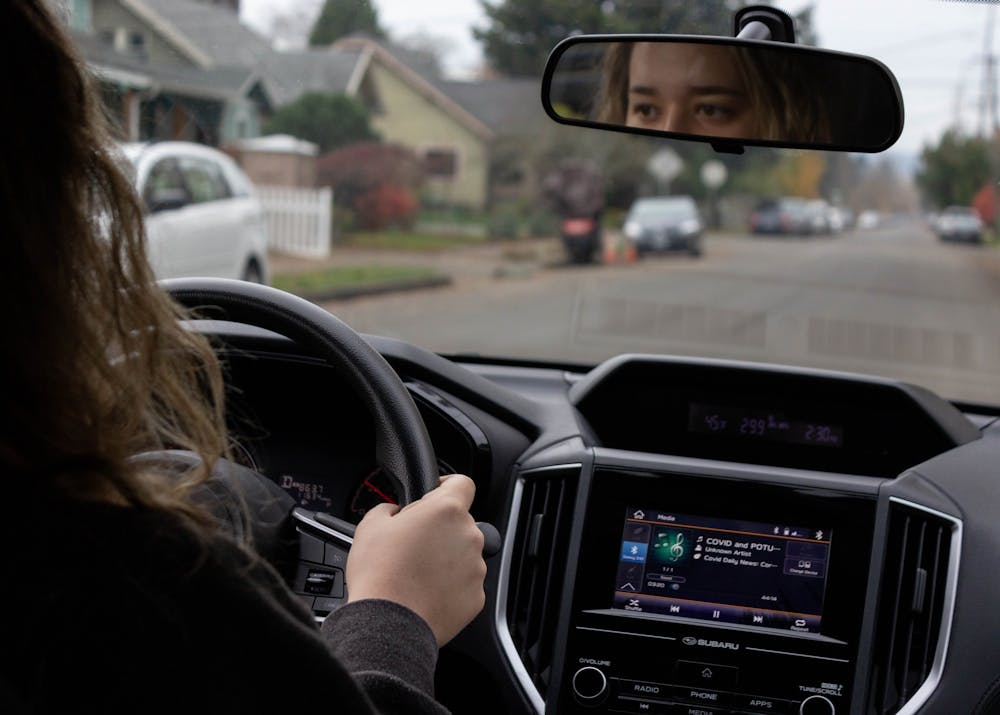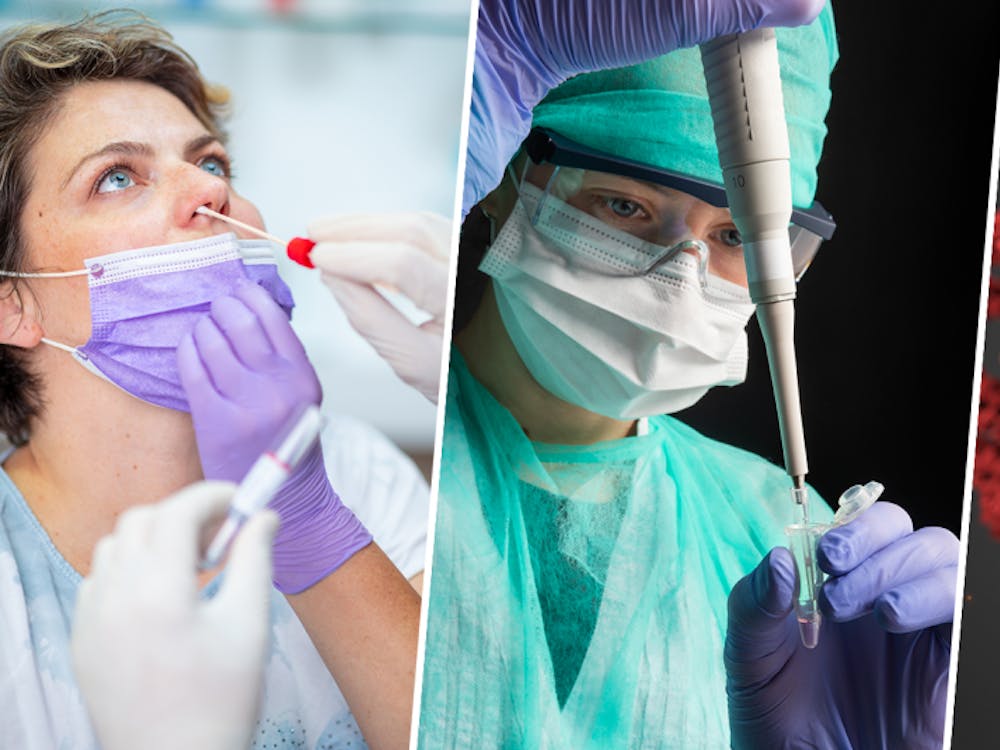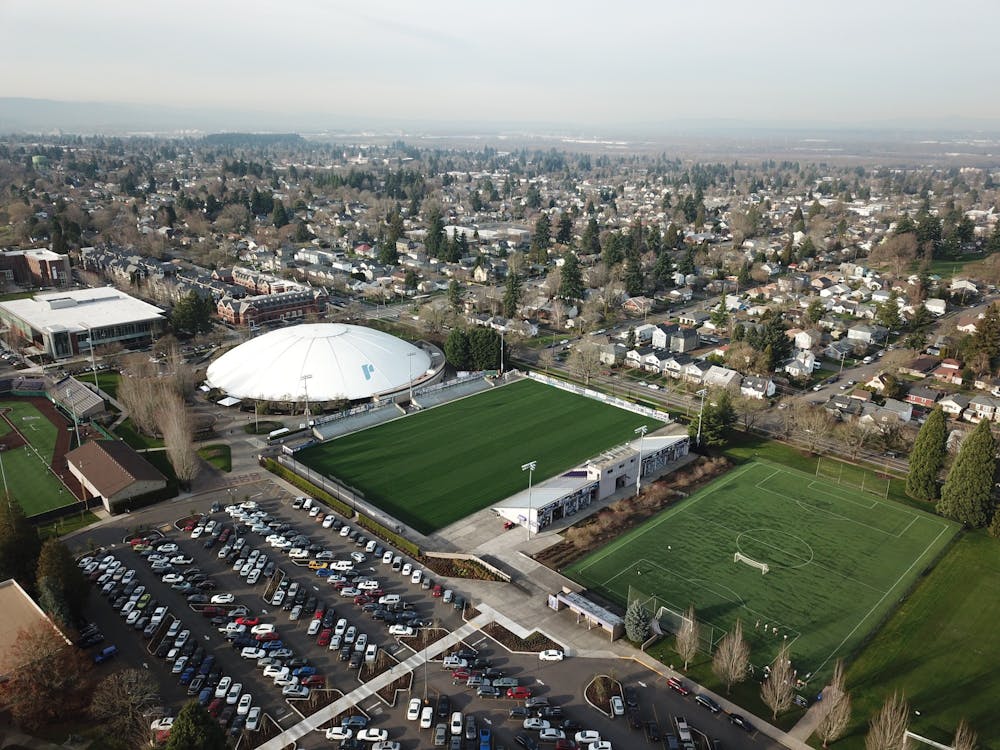As the end of fall semester draws near and COVID-19 cases spike across Oregon and nationwide, students in the Portland area are being forced to decide between staying where they are or breaking quarantine by returning to their families for Thanksgiving.
Oregon has instated a two week “freeze”, and Multnomah County in particular will see a freeze for a minimum of four weeks. Health experts including The Centers for Disease Control are warning the public to stay home for Thanksgiving, putting a halt to many Portland students’ plans. For some, it’s a matter of distance, while for others, it’s an immunocompromised family member. In any case, there are health risks posed by travelling home, and students should take as many precautions as possible.
On Nov. 13, Oregon, California and Washington all issued travel advisories to limit the spread of cases in their states, as COVID-19 rates continue to increase in each state.
“COVID-19 does not stop at state lines,” Oregon Gov. Kate Brown said in a news release. “As hospitals across the West are stretched to capacity, we must take steps to ensure travelers are not bringing this disease home with them. If you do not need to travel, you shouldn’t. This will be hard, especially with Thanksgiving around the corner. But the best way to keep your family safe is to stay close to home.”
It was a tough choice to make for junior psychology major Spencer Grebosky, but he feels that staying in Portland is the right thing to do.
“I’m staying here at my house in Portland because I actually have an immunocompromised family member staying with my family back home,” Grebosky said. “I just know that I would feel awful if I were to somehow get coronavirus right before going home and spread it to my family and other people without even knowing it.”
Grebosky isn’t alone. With such high rates of cases, the risk of travelling is greater than ever before. UP’s Health and Counseling Center is advising students to avoid returning home, according to Associate Director of Primary Care Courtney Rau.
“My general recommendation is actually not travelling for Thanksgiving,” Rau said. “I really think the most important message right now is that it’s not safe to travel.”
Rau recognizes that many students are planning on getting tested right before going home, but cautions students to be wary of a false sense of security. No test is 100% accurate, and students need to be aware of the risks of relying on one test result.
“If we do a test, that tells me that you might not have it at that moment, but it doesn’t necessarily mean that you won’t develop symptoms or you won’t develop the virus at a later point,” Rau said. “I can tell you if you have it before you leave but I won’t be able to guarantee that you won’t catch it on your way home, or in the airport. There’s really no way to guarantee that you won’t be bringing it home.”
According to Nurse Practitioner Kaylin Soldat at UP’s Health and Counseling Center (HCC), the HCC is still providing coronavirus tests five days a week. There is no shortage of tests, although staffing constraints put a limit on how many students can get tested per day.
“Students who are asymptomatic and wanting to be tested to travel or for academic requirements can be tested as availability allows,” Soldat said in an email. “These may be the ones having difficulty scheduling. We’ve had a surge in students requesting testing prior to traveling for the holidays and haven’t been able to accommodate all those requests.”
Soldat reminds students that those who are experiencing symptoms are the priority, and that test results will take three to four days after the test is administered. If the HCC does not have any available appointments, Providence Express Care Virtual and ProvRN are free for UP students to use. To schedule an appointment, or for any other questions, students should email the HCC at hcc@up.edu.
Some students who plan on visiting home have been taking extra precautions in recent weeks to minimize the risk. Sophomore nursing major Ruby Prince plans on visiting her home, and believes that her family and herself have been responsible in their planning.
“Of course, there’s always going to be a risk, but I haven’t been out partying and hanging out with people like I see a lot of other people doing,” Prince said. “Both me and my family members have been really good about doing basic stuff like wearing masks and washing hands and social distancing. Also, I’m going to get tested right before going home, and it’s just going to be me driving, so there’s a low chance of me getting it while travelling.”
Still, the risk is real. Students who are planning for a quick trip home are not only risking the health of family members, they are risking the health of their housemates in the case that they contract the virus at their homes and bring it back to Portland.
For this reason, students who plan on returning to their families for Thanksgiving should stay there until the end of fall semester, as COVID-19 symptoms can appear any time between two and 14 days after exposure.
“I understand that people want to go home and see their families, but I don’t want one of my housemates to go home and then come back with COVID-19,” Grebosky said. “I trust them all, but all it would take is one of them to get it from a family member, and then suddenly, everyone in my house tests positive.”
There are strategies that students who are returning home should be taking when around family members. This includes wearing masks and social distancing indoors, limiting all interactions to household family members, routinely washing hands and ensuring that all rooms are well-ventilated. Still, Rau wants students to recognize that their actions could negatively impact their future plans.
“I just think it’s important to remind students, that with the holidays coming up, that if they do go home for Thanksgiving and they get exposed there they won’t be able to come back for two weeks,” Rau said. “If they get exposed closer to the Christmas holiday, then they won’t be able to go home for even longer.”
The general advice for everyone remains as important as ever: wear a mask, practice social distancing and report any symptoms to the Health and Counseling Center.
For those flying home, some general safety tips include packing extra masks, downloading your airline’s mobile app for a digital boarding pass, washing hands both before and after your flight and bringing hand sanitizer aboard.
“If there’s any students that are wanting to go home for Thanksgiving, but they are immunocompromised, it’s definitely smarter to be home [in Portland],” Rau said. “You can do a two week quarantine if you’re not around anybody, that’s definitely the safest way to go home.”
Carlos Fuentes is the Copy Editor for The Beacon. He can be reached at fuentes22@up.edu.








